Description
Details
GERANIUM
Plant/Part: Flowering Plant/flowers and leaves (Source: France, Morroco, Egypt and Italy)
Latin Name: Pelargonium odorantissimum/graveolens
Family: Geraniaceae
Extraction: Distillation
AROMA: A fresh, floral and sweet smelling oil it relaxes, restores and maintains stability of the emotions.
PROPERTIES: It has often been used to ease the effect of PMS. An astringent oil excellent for all skin types. Used in skin care products for both its fragrance and cleansing properties. Useful insect repellent. For massage where there is cellulite and treating eczema and psoriasis. Blends well with other floral oils, and, mixed with Lavender and Bergamot produces a delightful room freshener. Also has a stimulating effect on the lymphatic system which keeps Infection at bay and disposes of waste products. It is also a tonic to the circulation, making it more fluid. Effective in throat and mouth infections – if the sweet aromatic flavour appeals. Its pain relieving qualities also helps ease neuralgia. Generally has a clearing effect on mucous, mainly of the digestive system and may be good for gastritis and colitis . An aromatic insect repellent.
CHEMICAL CONSTITUENTS: Geraniol, Borneol, Citronellol, Linalol, Termineol,Limonene, Phellandrene, Pinene.
PRECAUTIONS: May cause some irritation to sensitive skins. Regulates the hormonal system so may not be a good idea to use in pregnancy.
BLENDS: Cedarwood, Citronella, Clary Sage, Grapefruit, Jasmine, Lavender, Lime, Neroli, Orange, Petitgrain, Rose, Rosemary, Sandalwood.
Digestive: used for diarrhoea.
Genito-Urinary: stimulates the production of urine (diuretic); antiseptic, used for infections of the urinary tract. balances abnormal secretion of sex hormones during menopause. diminishes fluid retention, which is one of the major sources of discomfort in pms (premenstrual syndrome).
Circulatory: improves circulation.
Respiratory: antiseptic, pain-relieving, used for sore throat, tonsillitis.
Skin/Hair: especially good for oily and dull skin (helps to control excessive oiliness, stimulates both the lymphatic and the circulatory systems), but it can be used for all skin types. antiseptic, fungicidal, cleansing, mildly pain-relieving, reduces inflammation, stops bleeding, promotes the forming of scar tissue, helps wounds to heal. used for acne, bruises, burns, cuts, broken capillaries, varicose veins, dermatitis, cellulite, eczema, ulcers, wounds.
Emotions/Mind: stimulates the adrenal cortex, helps to combat stress and depression. “both sedative and uplifting” (tisserand).
Other: reduces breast engorgement. caution: it can lower blood sugar level, so it is best avoided by hypoglycemia sufferers.
The much loved ‘geraniums’ of our tubs and window boxes are not, in fact geraniums but pelargoniums, and it is from the leaves of the Pelargonium Odorantissimum, and one or two other varieties, that the essential oil is obtained by steam distillation. The principle constituents of the essential oil include geraniol, citronellal, linalol, terpineol and alcohols. The oil is a beautiful pale green in colour, and the odour can also be described as ‘green’. It has some superficial resemblance to Rose, particularly if it is distilled from the variety Pelargonium CapUatum, or rose geranium, though a sensitive nose would never confuse the two. It is often used in commercial preparations to ‘stretch’ the much more expensive oil of Rose.
The plant is another which Culpeper described as being under the influence of Venus, though it is of a less obviously feminine character than Rose. The oil can be described as having a middle position between the sweetness of Rose and the sharpness of Bergamot, and because of this relative neutrality blends well with many other oils, particularly Bergamot and Lavender.
Like virtually all the flower oils, it is antidepressant and antiseptic. It is also a valuable astringent and a haemostatic (it stops bleeding), which makes it very useful in treating injuries. It also promotes speedy healing. It is used in skincare, for its delightful perfume, for its astringent and antiseptic properties and for its action in balancing the production of sebum. This makes it valuable for skins that are excessively dry or oily, or for dry skins with oily patches.
This balancing action arises from the fact that Geranium is an adrenal cortex stimulant. The hormones secreted by the adrenal cortex are primarily regulators, governing the balance of hormones secreted by other organs, including male and female sex hormones; so it is of great assistance in menopausal problems and all conditions where a fluctuating hormone balance is indicated. In particular. Geranium may be used to relieve pre-menstrual tension, and here its diuretic properties also enter into play, helping to relieve the excessive fluid retention which many women experience pre-menstrually.
Geranium also has a stimulating effect on the lymphatic system, and this, combined with the diuretic action, is why I use it in a massage cream for the treatment of cellulitis, fluid retention and oedema of the ankles. The two properties reinforce each other in helping the body to eliminate fluids more efficiently, and in fact Geranium is a valuable aid to elimination in general, having a tonic effect on both the liver and kidneys. It has been used to treat jaundice, kidney stones and various urinary tract infections.
Theoretically it is also a good antiseptic for the mouth and throat, and could be used in mouthwashes and gargles for sore throats, ulcers and gum infections, but in practice many people find the extremely flowery perfume distasteful when it comes to actually putting it in the mouth, so other oils such as Myrrh and Thyme arc more useful, simply because they will be more willingly used.
Some writers describe Geranium as a sedative oil, though Valnet does not, and certainly a number of instances have come to my attention where people were over-excited, restless or unable to sleep quite a few hours after using geranium, even in quite small amounts. For this reason, I avoid using it in the latter part of the day, and like to use it in blends with balancing and sedative oils such as Lavender. It is certainly a valuable antide-pressant, and some people may prefer its perfume to the sharper scent of Bergamot, though here again I find it better to use the two in combination.
Going back to the windowboxes, it may well be that Geraniums originally earned their popularity as windowsill and balcony plants because of their insect repellant properties. The oil is used in a number of commercial insect repellant preparations, often in combination with Bergamot, Lemon or Citronella. Room sprays that include Geranium will help to keep your house free from flying pests in summer, and as it is also a deodorant oil, will also keept it sweet-smelling.
Ancient civilisations regarded Geranium as an exceptionally powerful healer, and credited it with the ability to heal fractures and even eliminate cancers. I do not know of any modern work that has proved or disproved this reputed action. Jean Valnet mentions it, but with caution. I retain an open mind on this question, for our ancestors have been proved right too many times for anybody to dismiss their knowledge too lightly.

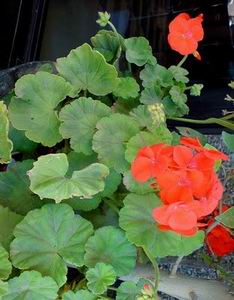
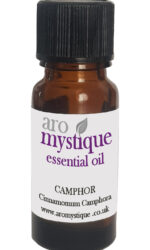
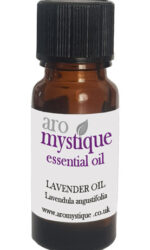
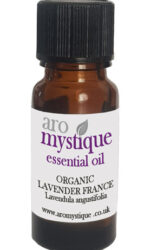
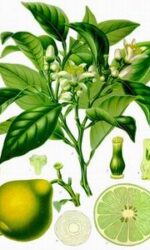
Reviews
There are no reviews yet.